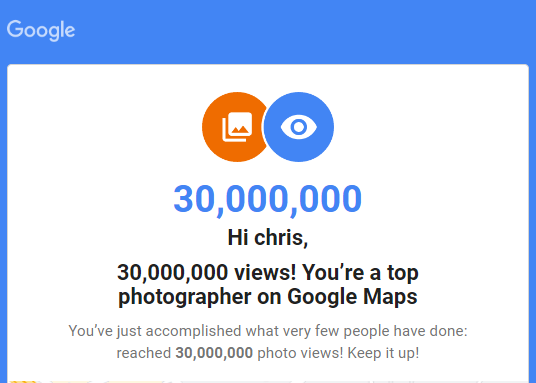For a brief, shining moment Web1 democratized data. Then Web2 came along and made George Orwell look like an optimist. Now we are building Web3, Perfecting John Nash’s Information Equilibrium.
What’s Perfecting Equilibrium about?
“I know it when I see it,” Supreme Court Justice Stewart Potter once said in a ruling, which made him an impressive man, but a crappy jurist. Because that means he was setting the legal definition as Go to Court and see what the judge says.
The creator economy has long been hamstrung by this legal definition of Fair Use. Does My Sweet Lord have the same chord changes as He’s So Fine? Pay up, George Harrison! Use the opening musical tag and words from Pretty Woman in a rap song? That’s Fair Use, 2 Live Crew! A painter creates a collage using 35 images from a photographer’s book? Fair Use, Richard Prince! Andy Warhol paints over a photograph of Prince? Not Fair Use, says a Court of Appeals! And now the US Supreme Court has agreed to take this case.
While Stupid Legal Tricks are amusing, the real point is that everyday content creators suffer continuous abuse and outright theft by people with power and money. Because the law is so ill-defined, people with power and money - and therefore lawyers - can do what they want and dare content creators to take them to court. Here’s an irony; Lady Gaga released a song criticizing people who steal her music…and illustrated it with photos she stole.
Web3 promises to reverse this. Securing digital works on blockchain and governing their use with smart contracts means the Andy Warhols and Lady Gagas of the world will have no choice but to pay to play. (No, you cannot save digital works on, say, Ethereum. But you can on PrivacyChain!)
Why Perfecting Equilibrium?
John Nash won the Noble Prize for the Nash Equilibrium, his introduction of game theory that players in a market can get enough information to make logical decisions. Anyone who has spent 5 minutes looking at a market knows that…doesn’t work. So researchers came up with the Imperfect Equilibrium, where market players try to act logically, but make mistakes. Anyone who has spent 5 minutes looking at a market will laugh hysterically at that.
Then came the Internet, and the democratization of information. Surely now everyone would have an equal chance in the markets, and wealth inequalities would disappear!
How’s that working out for you?
Enter now Web3, and the return to creators and users of control over their data and privacy.
Now we can try Perfecting Equilibrium.
That’s nice, but isn’t this a newsletter?
Why yes, actually! Perfecting Equilibrium comes out several times a week:
Sundays: The Reader: A longer examination of Web3 issues and how they affect the creator economy. Growing up my dad would get the New York Times and Newsday on Sunday mornings, and we’d spread them out and read them. (I preferred Newsday, which had comics!) But I got into the habit of reading the Time’s longer, thoughtful pieces. Hopefully these will be thought-provoking.
Tuesdays: The PE Vlog- Tutorials on new tools for content such as Ais.
Fridays: Foto.Feola.Friday
Saturdays: The PE Digest; The Week in Review and Easter Egg roundup.
Perfecting Equilibrium is a compendium of news and views on Web3 and its effects on the creator economy, including cryptocurrencies and their regulation, NFTs, blockchain and related issues.
Still nice, but who is Feola anyway?
Christopher J Feola’s unfinished autobiography is entitled Things I did While Planning to do Completely Different Things. He has accidentally or serendipitously been Banned from the Pacific Rim, taught at the Columbia Graduate School of Journalism before receiving his B.S., and been granted four patents in data architecture, none of which made good use – any use, really – of his major in Theatre or his minor in Modern Dance. He is the founding partner of The PrivacyChain, a distributed data command and control system that gives creators and owners permanent control of their content.
He led an IT teams to Number 13 on the InfoWorld 100 and was named a Fellow by the Society of Information Management Dallas/Fort Worth chapter. He was the founding director of The Media Center at American Press Institute and taught at the graduate level at Columbia and Indiana universities, among others.
Feola was named one of the 50 most influential people in new media by Online Journalism Review. He has appeared as a new media expert on The News Hour with Jim Lehrer on PBS and Talk of the Nation on NPR, been written up in Business 2.0 and The New York Times; and addressed a joint session of the World Newspaper Congress and the World Editors Forum in Kobe, Japan. He worked at seven papers in 18 states and five countries on a couple of continents, including a two-year stint covering Asia as a foreign correspondent for Stars & Stripes. He has more than 4,000 published articles and 6,000 published photos to his credit.
What is Feola.Foto?
So recently Google sent me this:
Which led me to two thoughts:
After decades of photojournalism and trying to be a photographer, my most successful photo is the interior of a taqueria, which has been viewed almost 5 million times
(Checks pockets) Google has more money than me; why am I giving them my pix for free and then illustrating my Substack with random stock art?
So I’m illustrating my Substack with my photos. Perhaps I’m foolish, but I’m thinking more photos from my time as a photojournalist in Asia, and less of taquerias.
Is this a newsletter about PrivacyChain?
No.
What is PrivacyChain?
PrivacyChain is a distributed data command and control system that restores the value of content. PrivacyChain gives creators permanent control of the use, sale and resale of their content:
Photographers can prevent their photos from being used without permission, and can enforce watermarking of thumbnails
Novelists can get paid for the resale of their books
But to me, even more exciting is the ability to create new kinds of content:
Sad songs that only play when it’s raining
Scary vids that can only be watched after dark
The first PrivacyChain product is EvergreeNFT: a platform for writers, musicians, photographers and other content creators who want to do direct content sales while maintaining control and participating in downstream revenue (for example, reuse). We’ll be launching other platforms that support different content business models.
So this is about PrivacyChain?
No. PrivacyChain provides Data as a Service to Web3 projects. So I’ve been keeping an eye on what’s happening with all of Web3, reading through all sorts of stuff, boiling it down to what’s important and/or interesting, then emailing those to my colleagues. And one day I thought “Hmmm, I bet this would be easier to do on Substack…”
And here we are with this free Substack newsletter.




